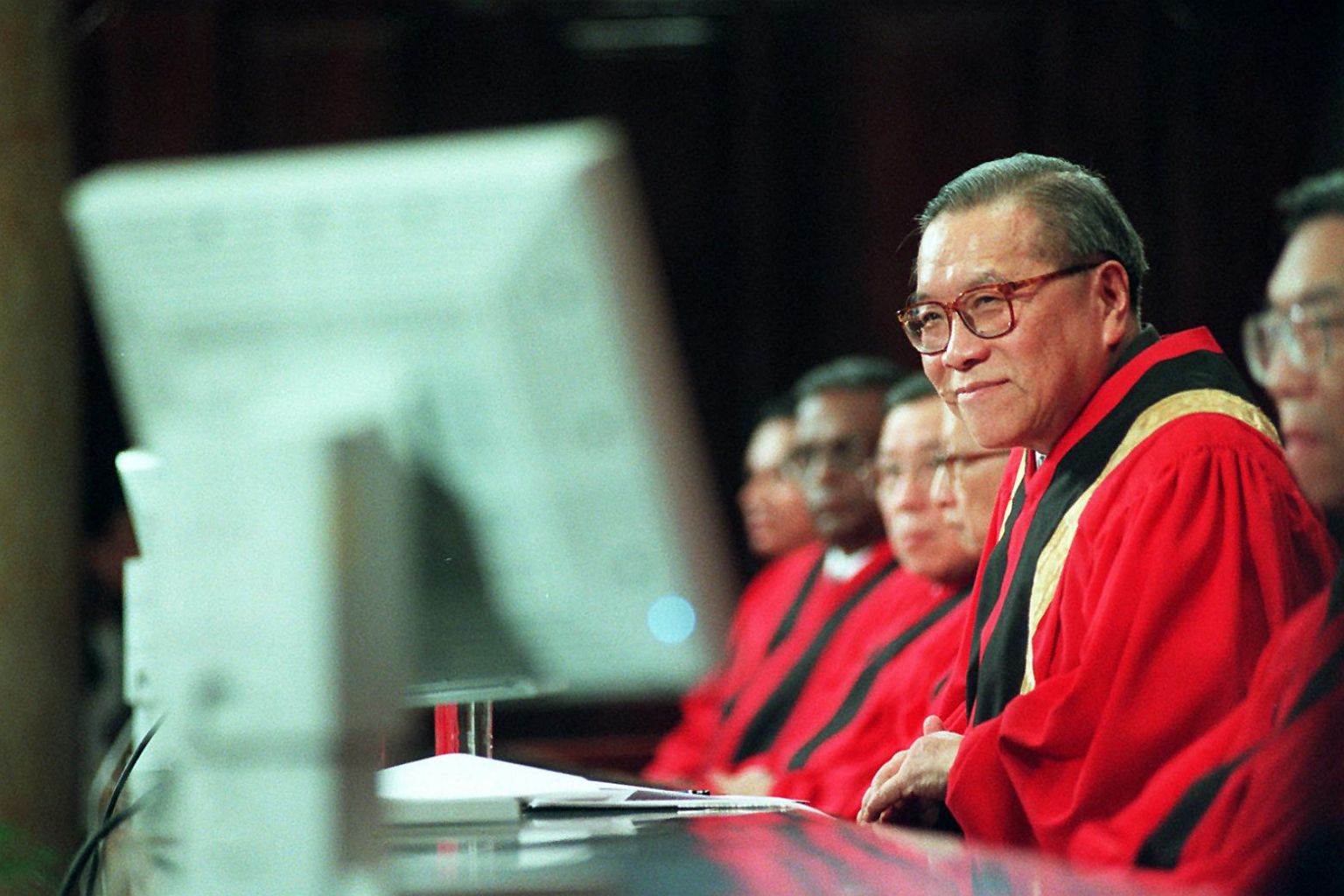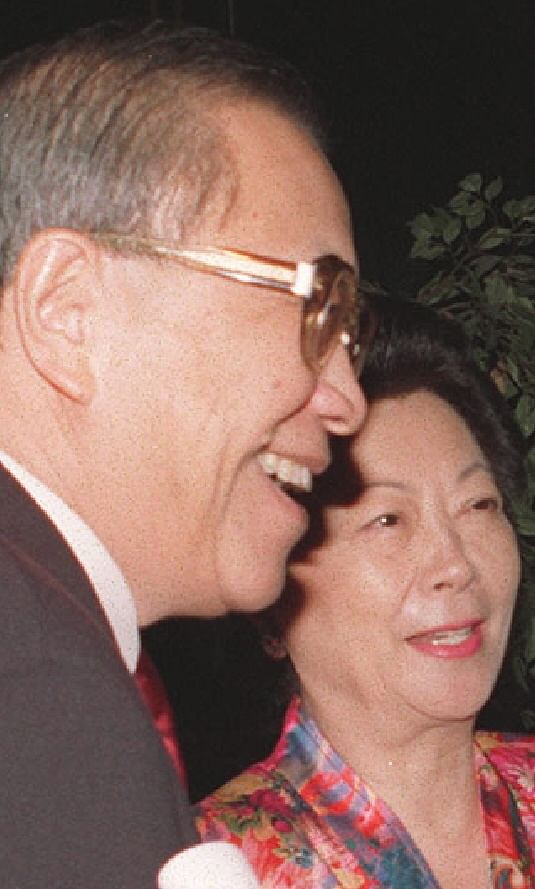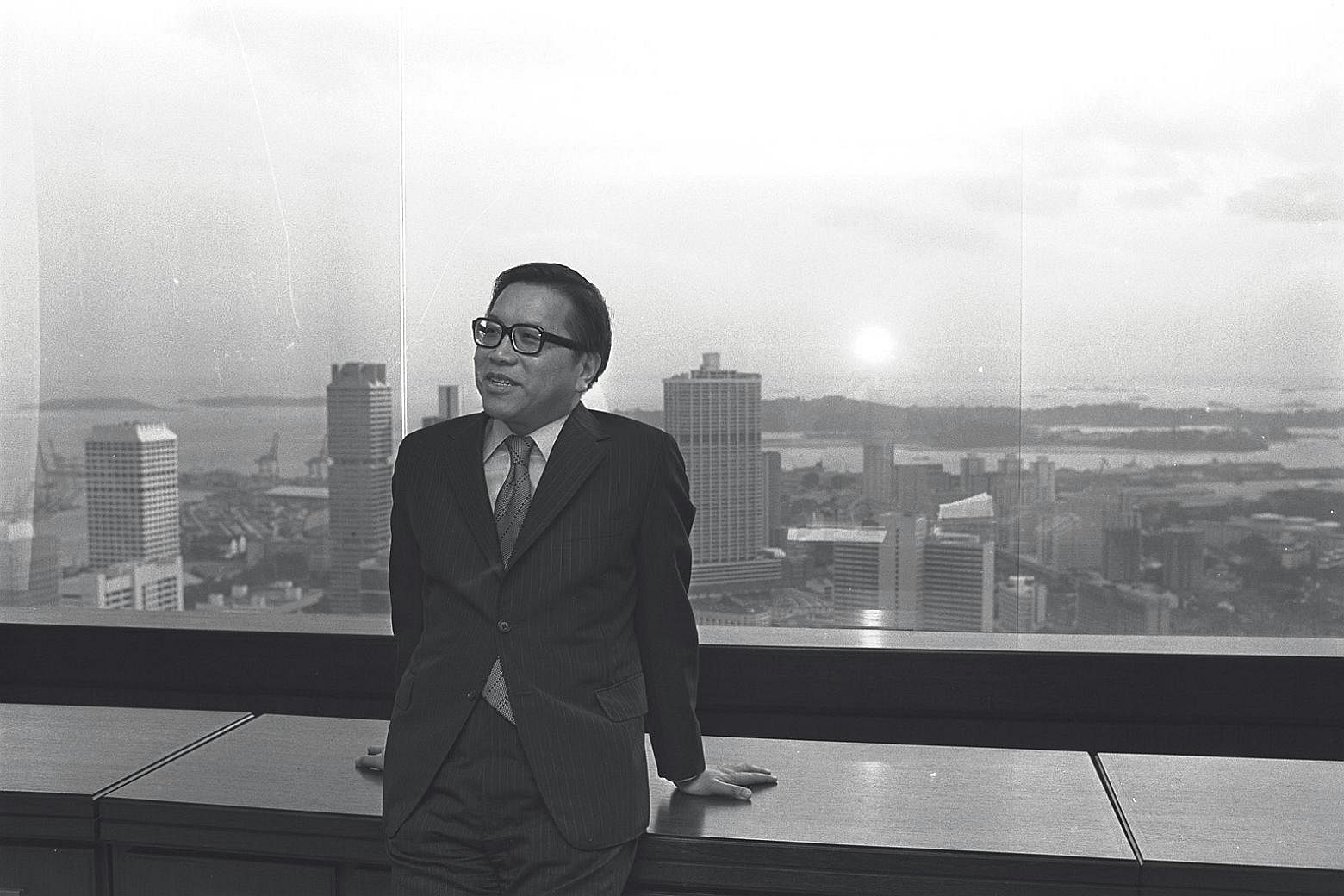From ST Archives: If fate had taken a different twist, Chief Justice Yong Pung How might have been a doctor
Former chief justice Yong Pung How, who implemented rigorous reforms to transform the Singapore court system into a model of efficiency, died on Thursday (Jan 9) morning. This story was first published in The Straits Times on June 11, 2004.
Sign up now: Get ST's newsletters delivered to your inbox

CJ Yong during the opening of the Legal Year 2000 at City Hall.
PHOTO: BT FILE
Tan Ooi Boon, Tan Ooi Boon
Follow topic:
If fate had taken a different twist, Chief Justice Yong Pung How might have been a doctor.
As a teenager, he had wanted to take up medicine.
Soon after he got his school leaving certificate in December 1940, he applied to the medical school at the then Raffles College.
He was only 14, and was told he was too young to join, and that he should reapply later.
"I supposed law then became the natural choice, as my father was a lawyer," said CJ Yong, 77, in an interview with Inter Se, the bi-monthly magazine of the Singapore Academy of Law, of which he is president.
While this was not the first such interview the CJ was giving, it provided a rare glimpse into his personal thoughts and life.
BEST FRIEND
For example, despite transforming the courts here into a world-class judiciary, and receiving Singapore's highest honour, the Order of Temasek, he said his "finest hour" in life had nothing to do with his illustrious career.
"I would say it was the day I married my wife. We have been married for 50 years now, and I still consider her my best friend," he said.
"To stay happily married with a good reputation and a close-knit family must be one of anybody's happiest achievements in life, whatever the work you do."
The value he places on family life was apparent when his daughter, Ms Yong Ying-I, now permanent secretary of the Manpower Ministry, disclosed in an interview a few years ago that he often reminded her "to go home and have dinner", and not spend all her nights at the office.

Mr and Mrs Yong Pung How have been married for 50 years.
CJ Yong told Inter Se: "If you do not have a happy family life and friends you trust, your career will be a poor substitute."
That, from a man who has been so successful in his career, came as a surprise, even for the interviewers - District Judge Audrey Lim and Law Academy director Serene Wee - who have known the CJ for over a decade.
MESSENGER & CLERK
Born in Kuala Lumpur on April 11, 1926, CJ Yong did various odd jobs during the Japanese Occupation.
He was a messenger and a clerk in a local bank, and once, he was even conscripted as a labourer to work at an airfield for the Japanese.
After the war, he was determined to fly to Cambridge and study law.
But there were no commercial flights and he had to hitch rides on army cargo planes.
In all, he had to make at least six stops, at Rangoon, Calcutta, New Delhi, Karachi, Cairo and Malta before finally arriving at an air force base in Wiltshire, West England.
"When you have lived through some lean and trying times, you learn to make the best of circumstances, be more resilient, and appreciate what you have," he said.
CJ Yong was among the first to believe that technology can help archaic legal systems to become lean and mean institutions.
Soon after he became Singapore's top judge in 1990, he spearheaded various initiatives to use IT to research the law, manage case flow, enable cross-border litigation via video-conferencing and even for lawyers to file suits online.
Such initiatives have won regional and international recognition and accolades for Singapore.
He realised the importance of technology when he recalled the days that he had to work without it.
"Back in those days, legal research was tedious and back-breaking.
"I would take over a sizeable portion of my father's office in the evening, lay out the stacks of law reports and books on the floor and cross-check a point of law by going on my knees."
These days, he said the computer could help him do all that and more, in only a fraction of the time.
Of course, if technology can churn out work faster, that means more reading for him.
"I did a course in speed-reading many years ago, before I went for a course in business administration at the Harvard Business School.
"Still you cannot read everything, or you will go blind. You just have to be more discerning about what you read, and what you want to read."
He started practising law in Malaya and was admitted to the Bar here in 1964.
He later rose to the position of senior partner in Shook Lin & Bok, a law firm that was founded by his father.
Between 1964 and 1989, he also held top positions in various public and private bodies.
He founded two merchant banks, Singapore International Merchant Bankers in Singapore, and Malaysian International Merchant Bankers Berhad in Kuala Lumpur, and served as chairman and CEO of OCBC.

Personally, CJ Yong became an inspiration to younger judges when he chose to single-handedly hear all criminal appeals from the Subordinate Courts.
To date, with over 1,000 judgments to his name, CJ Yong is probably one of the most prolific judges in the world.
His landmark rulings cover a whole spectrum of the law, from criminal and family cases to the most complex land and banking issues.
Every lawyer who has ever appeared before the CJ knows that they can never hoodwink the "Chief" by giving fluffy legal arguments or trying to hide the fact that they are ill-prepared.
QUICK-WITTED JUDGE
In an interview with The New Paper, former Law Society president Peter Low said: "The Chief is very sharp. Since I first met him as president, I knew I had to be on my toes all the time.
"This was to ensure I had answers to all his questions when he called for urgent meetings, as he occasionally did, at just an hour's notice!"
Senior Counsel Davinder Singh added: "The Chief is a very remarkable man. Despite his busy schedule, he still knows his cases very well and is on top of every single one of them.
"He can tell when a lawyer is not prepared. He would sometimes respond with humorous remarks or questions, which although extremely funny, are very pertinent to the case."
This reporter once sat in when a lawyer was trying to get his client off the hook for bribing a government official with a Chinese New Year hongbao.
The lawyer tried to convince the CJ that his client did this out of habit because he was rich and generous. The lawyer said: "He files huge income tax returns yearly."
CJ Yong retorted: "That will only make me envious."
"But sir, my client is very generous... His friends call him an ATM," the lawyer added.
And the CJ's reply? "That only proves that he is mechanical."
CJ Yong also demonstrated such witty humour during his interview with the law academy magazine.
WHEN HE RETIRES
Asked what he would do when he retires in two years' time, he said: "I came across an interesting article in The Straits Times recently - that two professors at NUS claimed that playing mahjong regularly is a good way to keep dementia at bay.
"Perhaps I might even try that."
And before tongues start wagging, yes, CJ Yong had himself ruled in a landmark judgment that a game of mahjong between friends is not gambling, but a form of recreation.
CJ SHOCKS LATE JUDGES
Before CJ Yong came along, some cases used to take years to reach the courts. The reason - judges and lawyers alike were happy with a slower pace and cases often got postponed when one of the parties was busy attending to other matters.
But after CJ Yong took over, he decided that this was not how the courts should function.
"I made it a point to visit the Subordinate Courts early in the mornings. The first time, those district judges who came in late that day were startled to see the new Chief Justice welcoming them at the court's entrance!
"Word got around, and the next day, everyone arrived on time. It was the same in the Supreme Court. I came in early and the Court of Appeal sat till 8pm on some days.
"Lawyers had to stay until we were done. After a while, the profession got used to the idea that everyone has to do a full day's work."
Now, Singapore has one of the most efficient judiciaries in the world, and urgent cases here can even go to trial in weeks if needed.
But to get good people for the Bench wasn't easy because salaries for judges were not so good.
"I had to go around with cap in hand, practically imploring people to accept appointments on the Bench," CJ Yong said, noting that it took him a few years before he could raise judges' salaries to a more attractive level.
On April 11 this year, he was re-appointed Chief Justice for a further two years.

